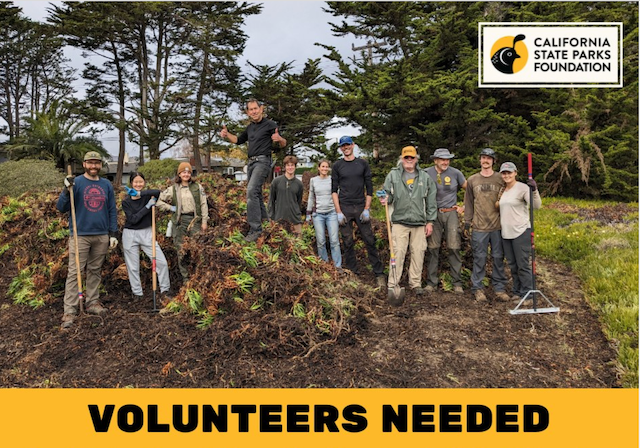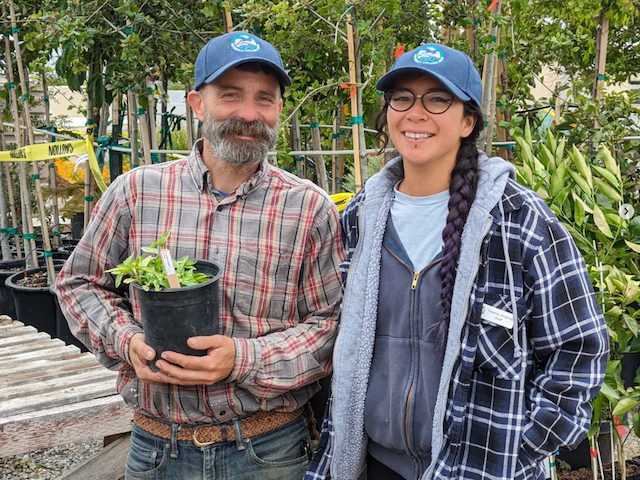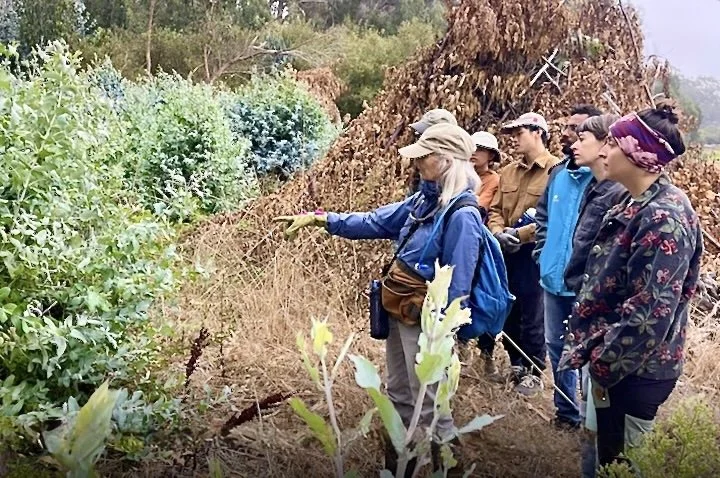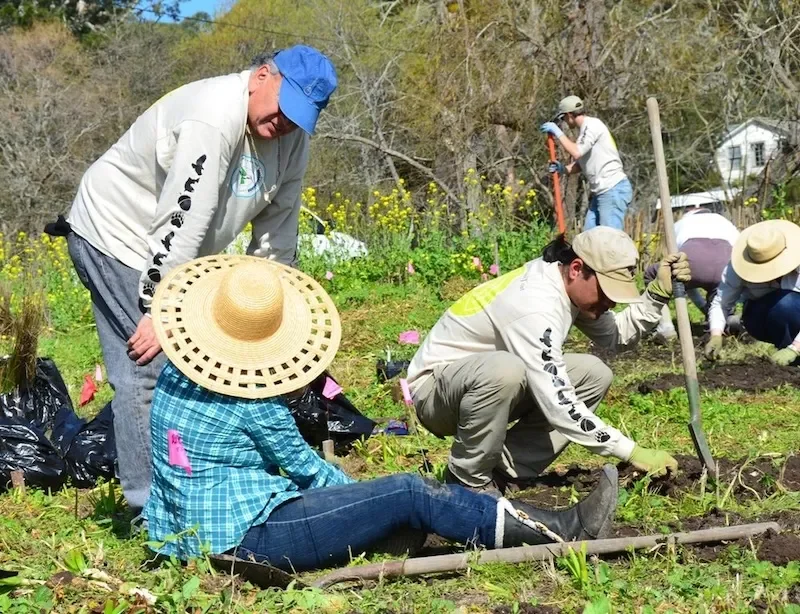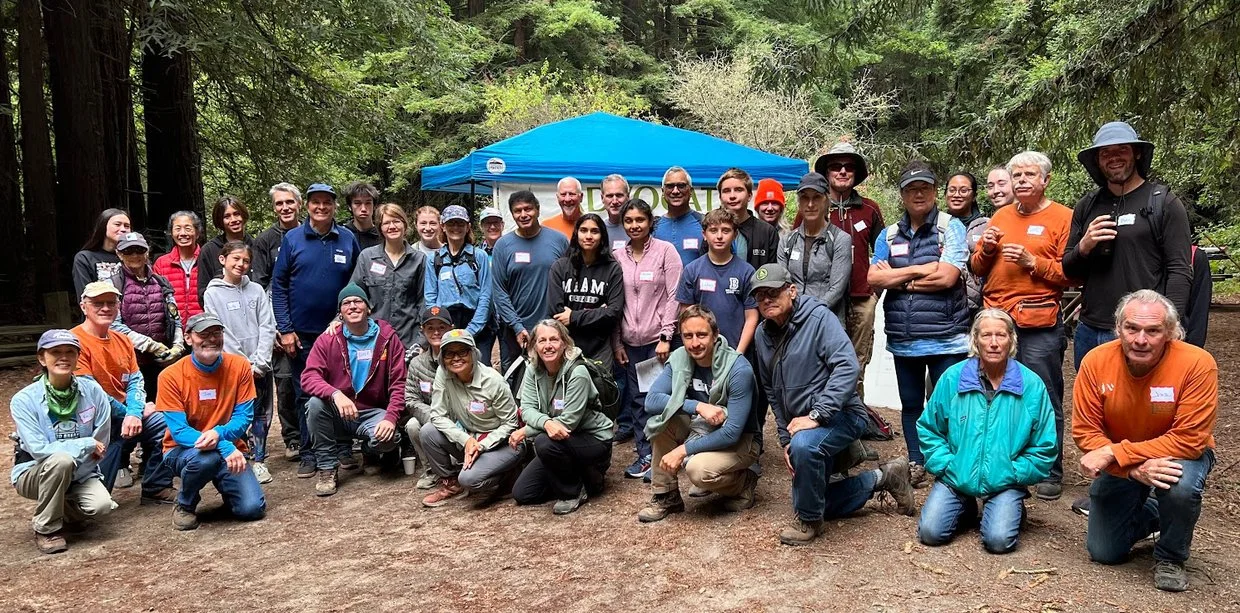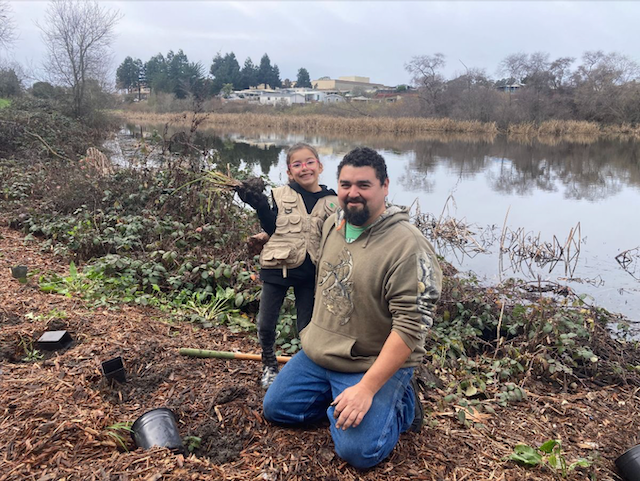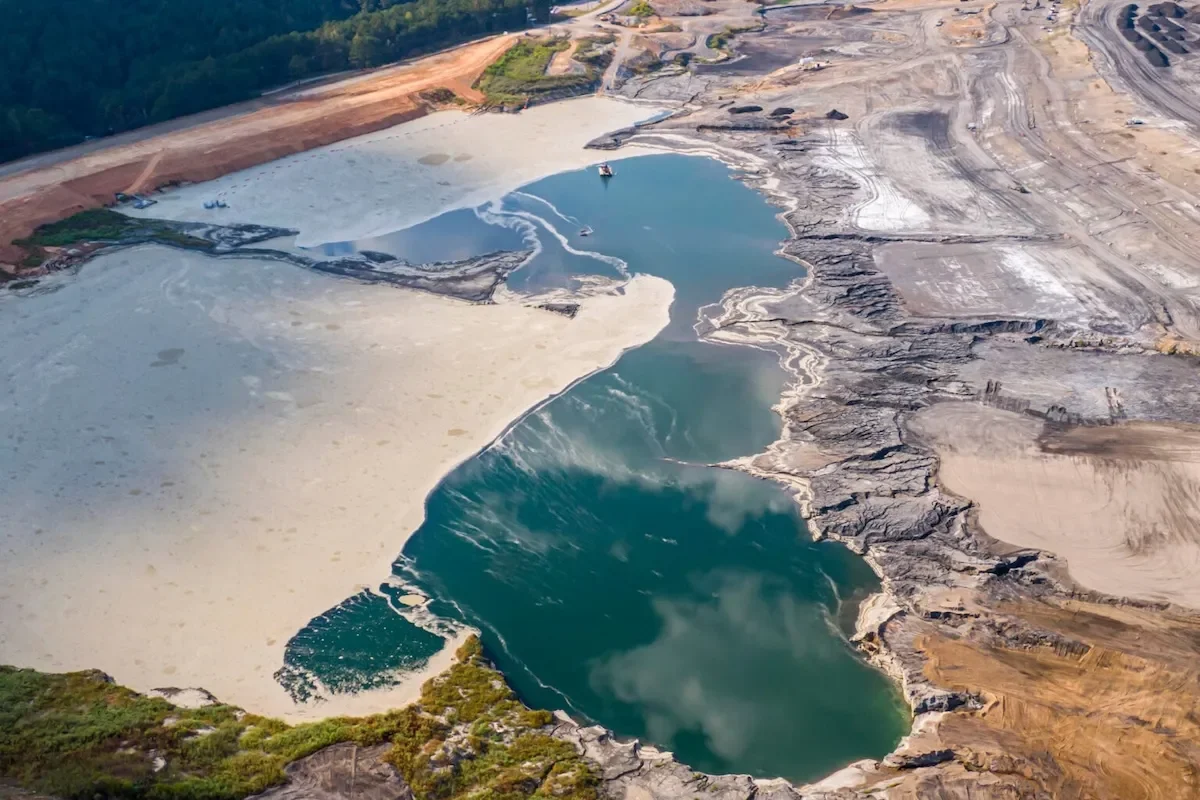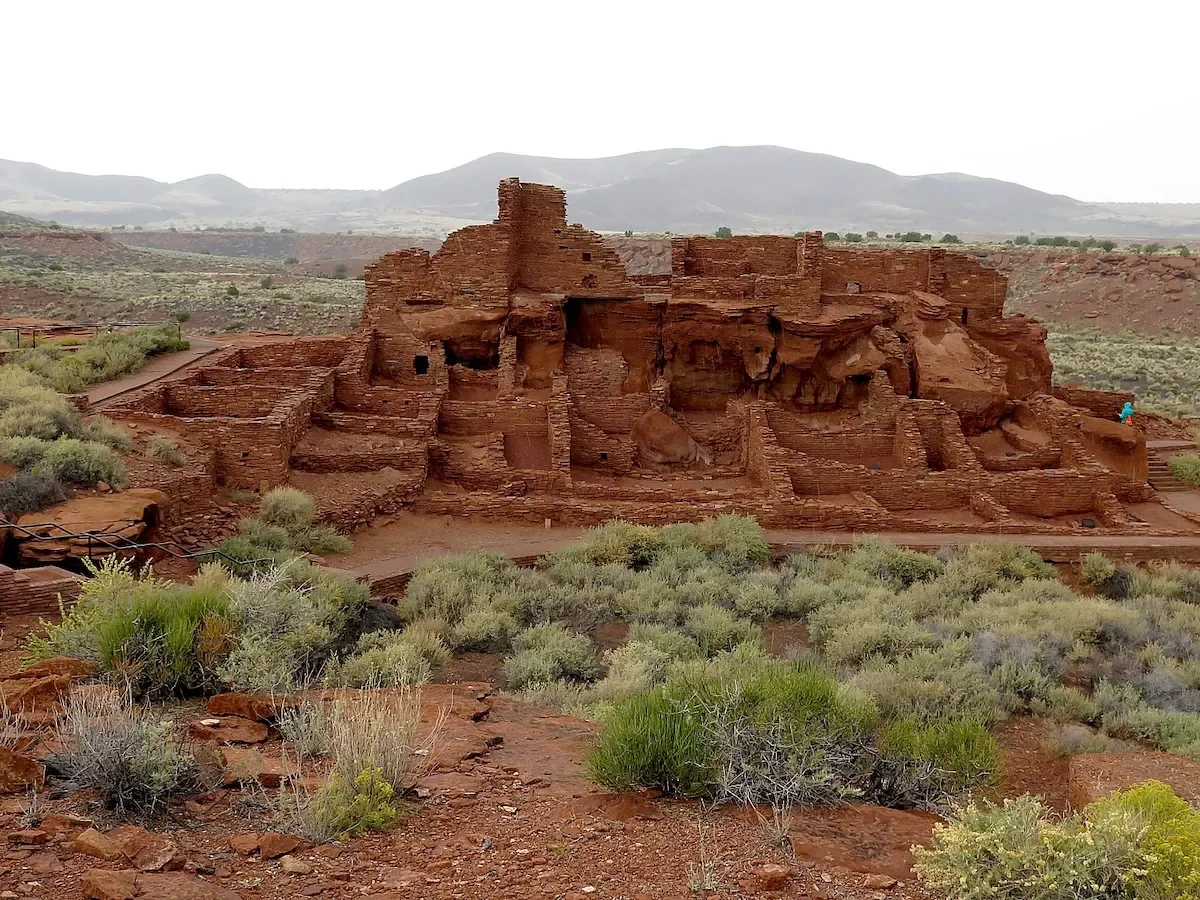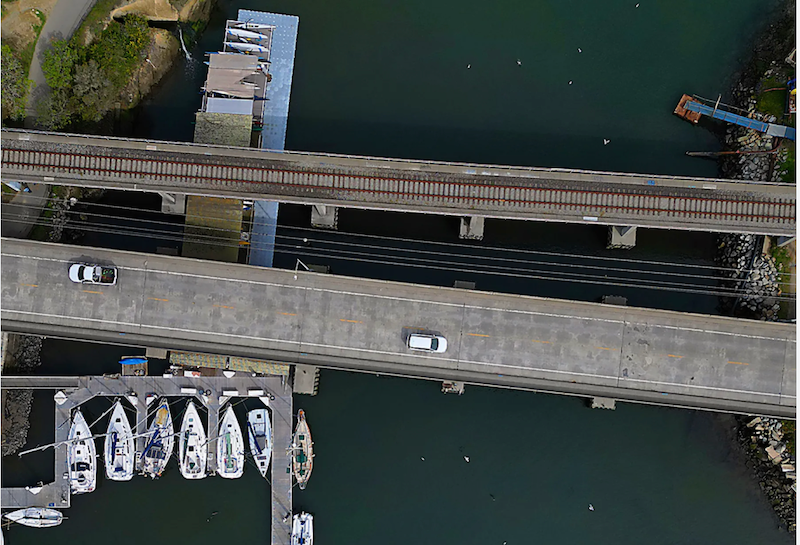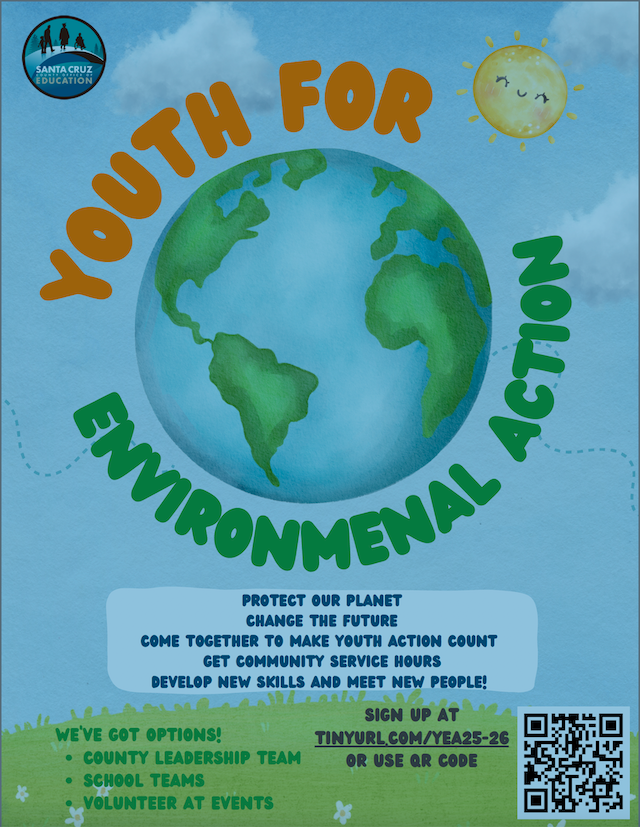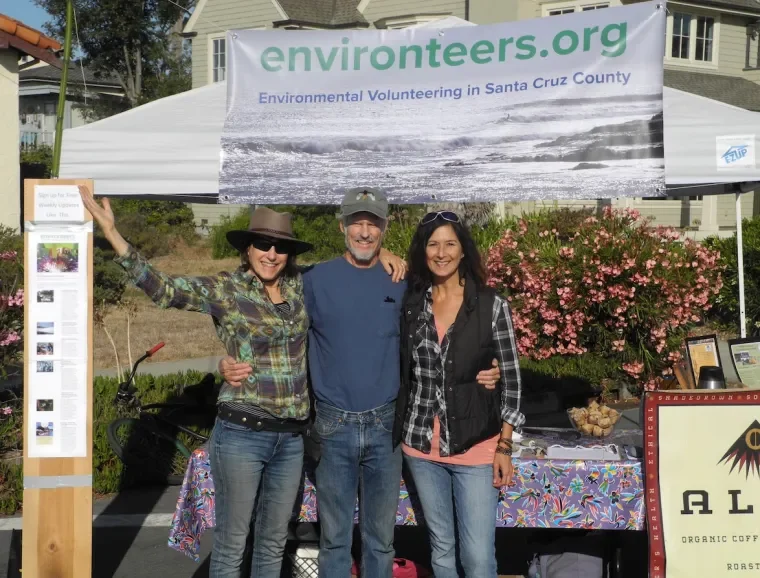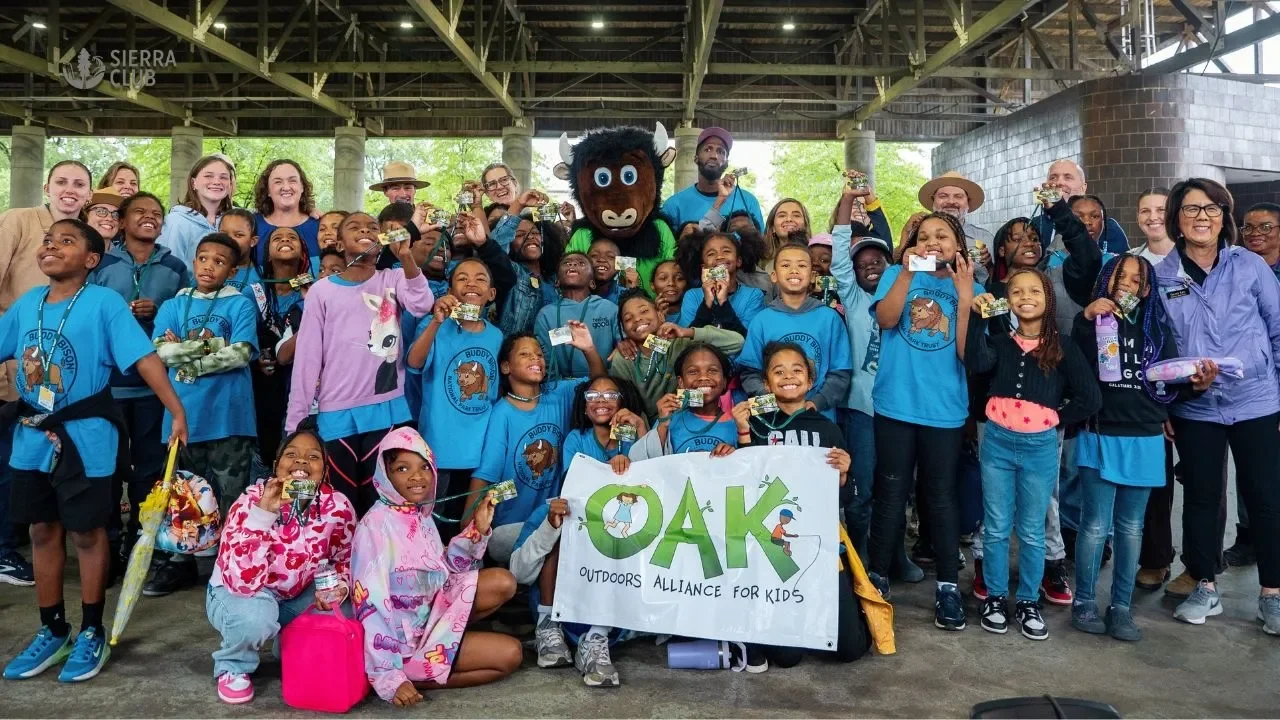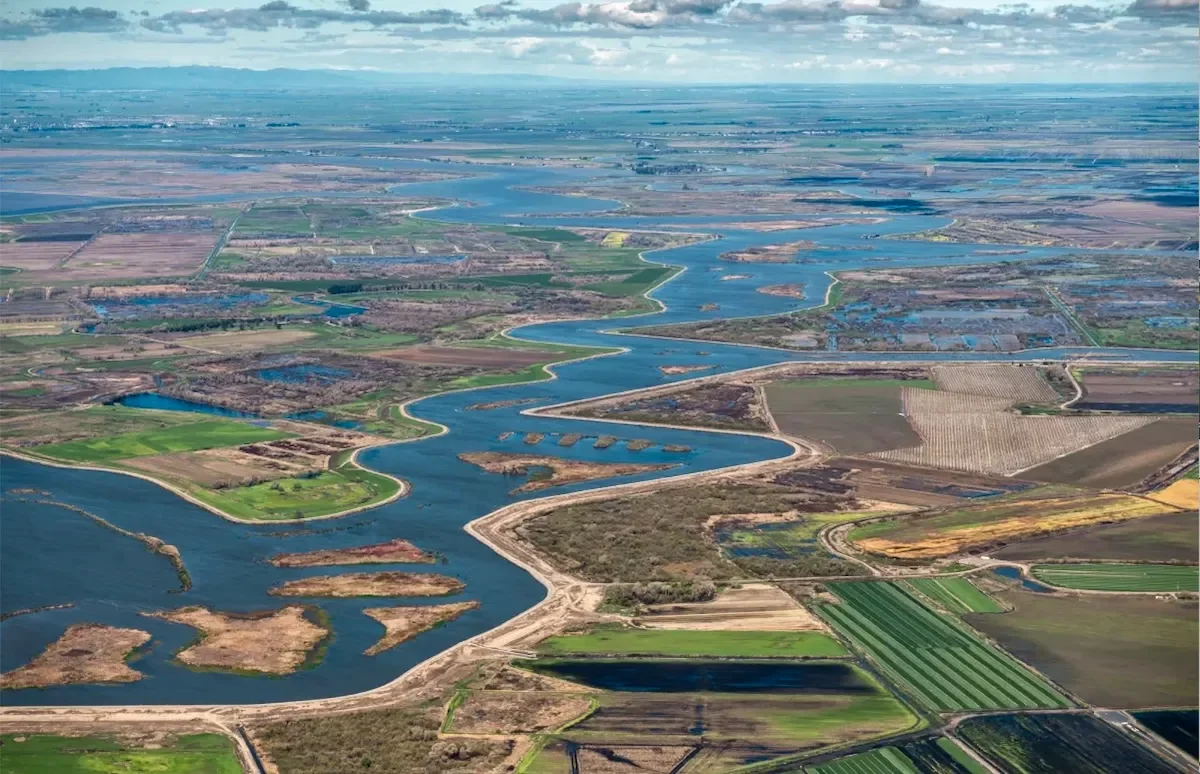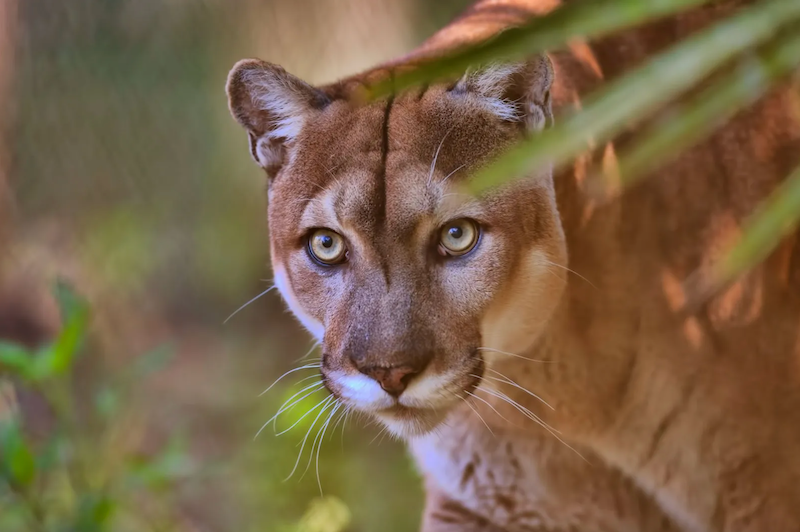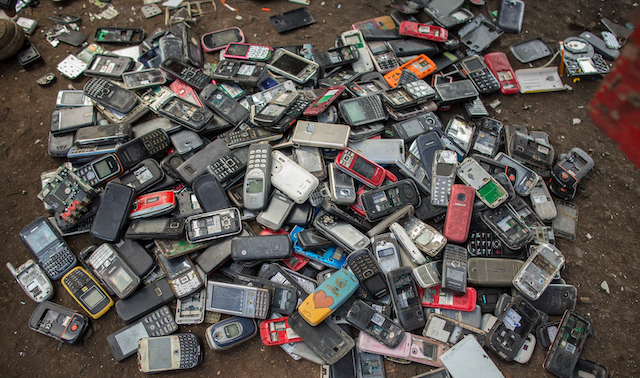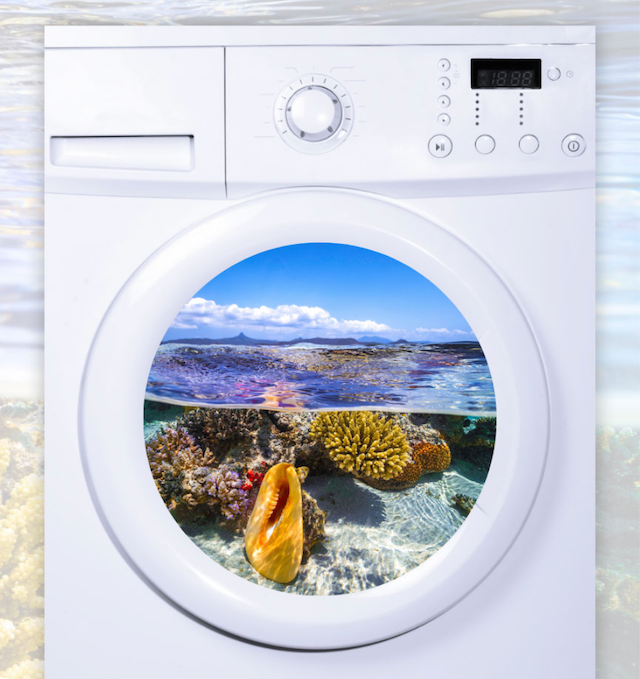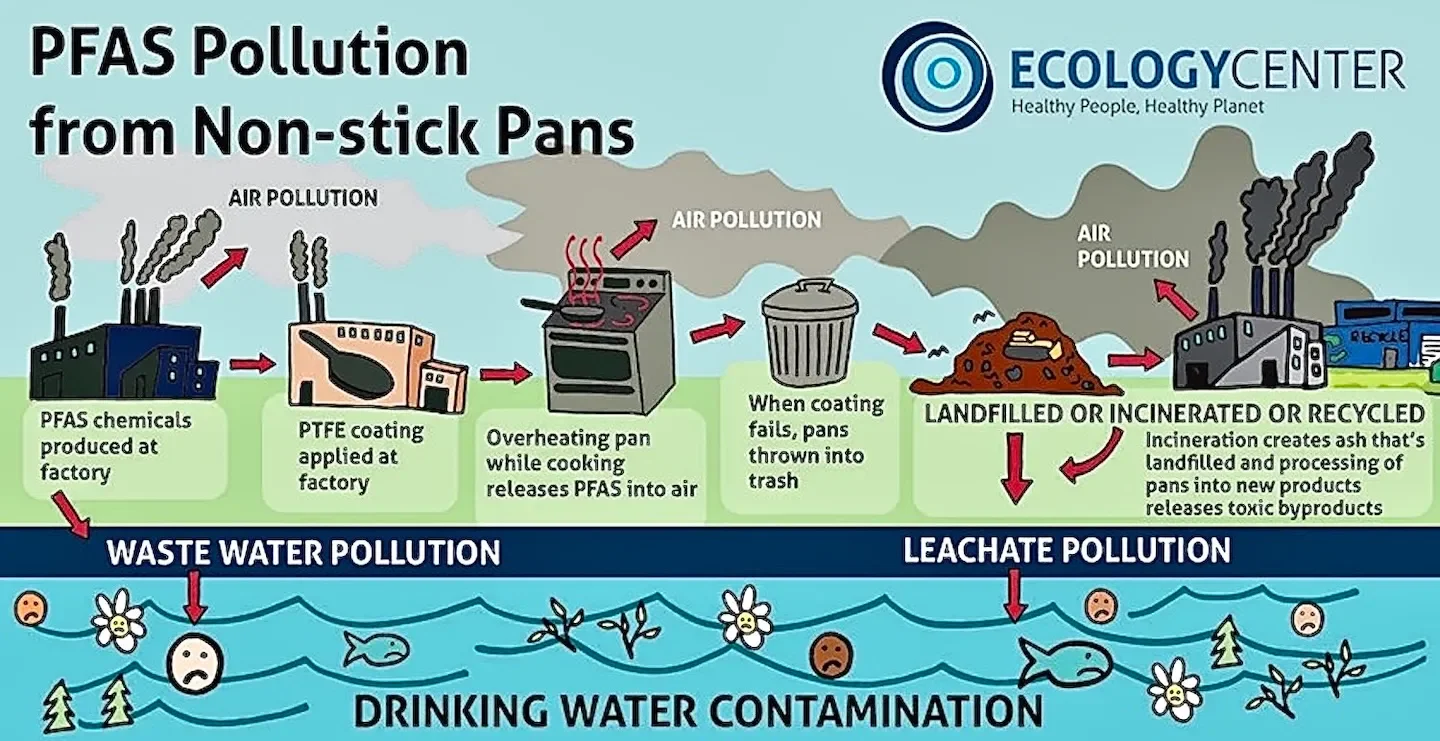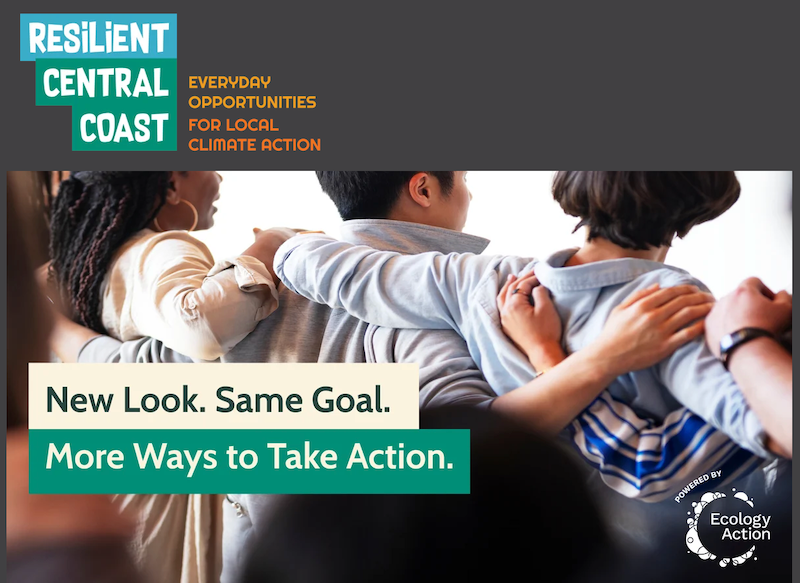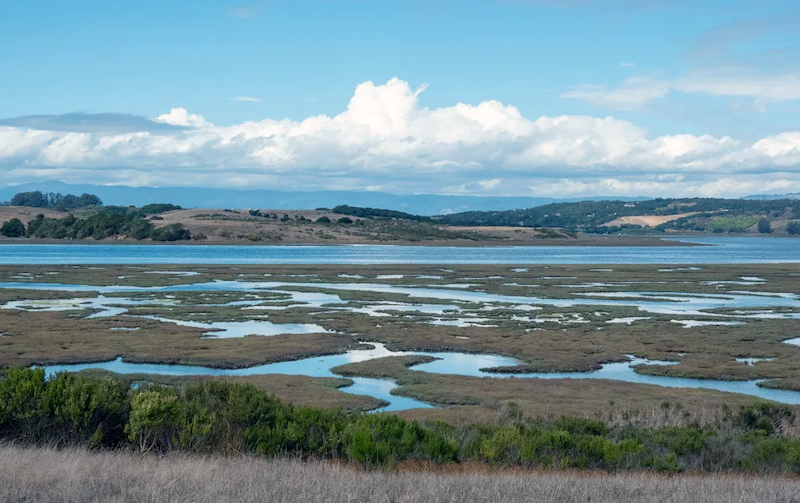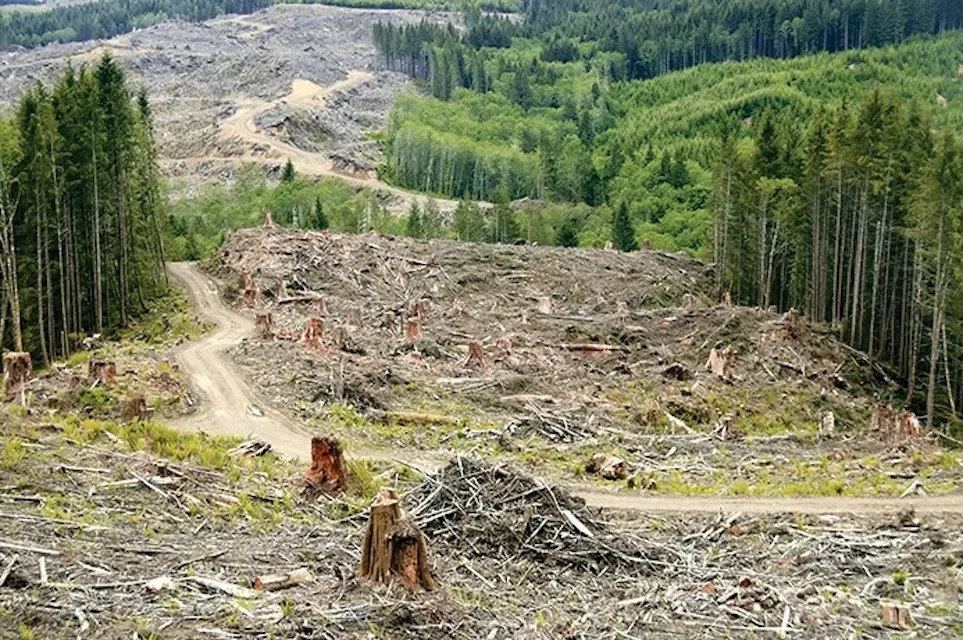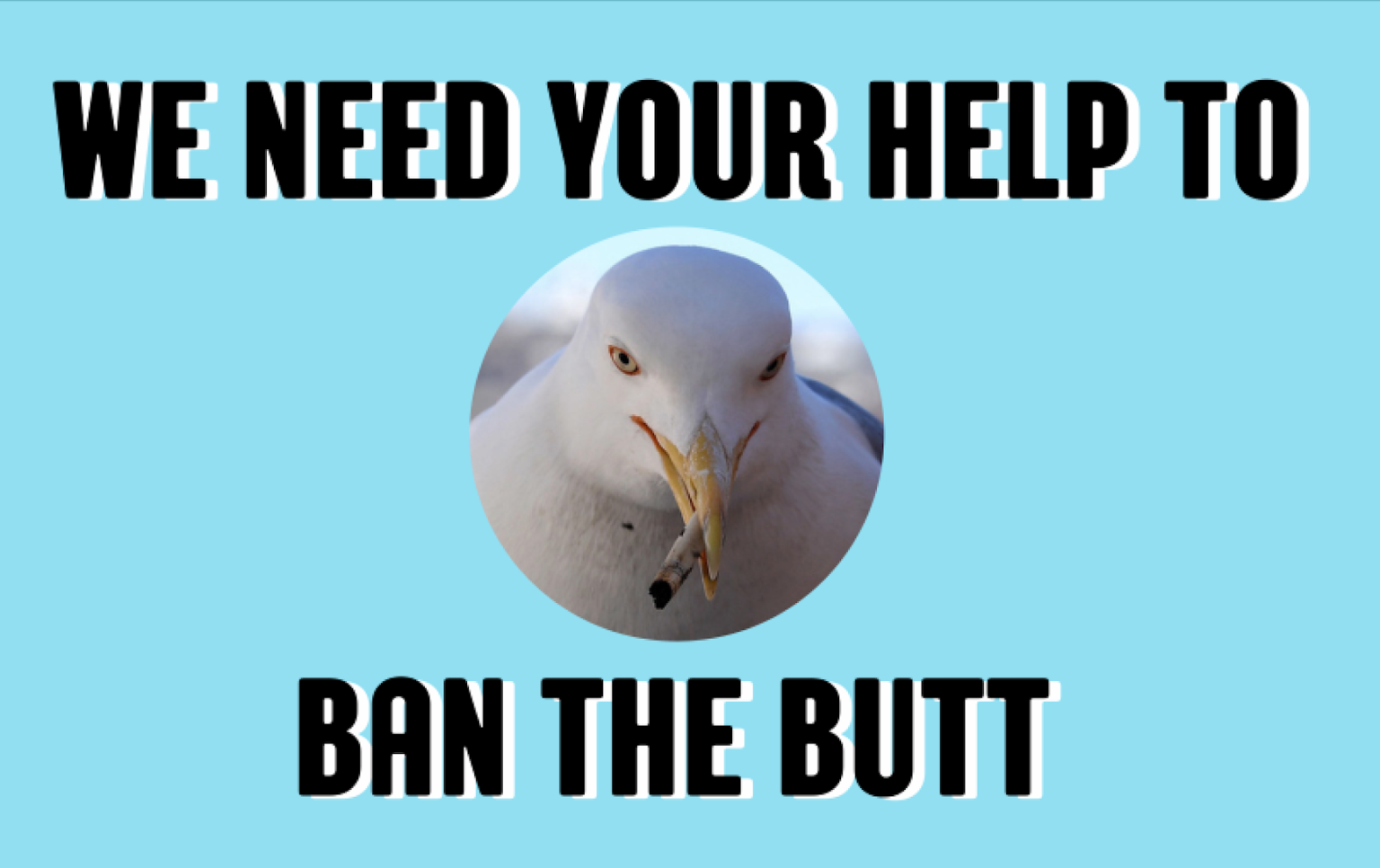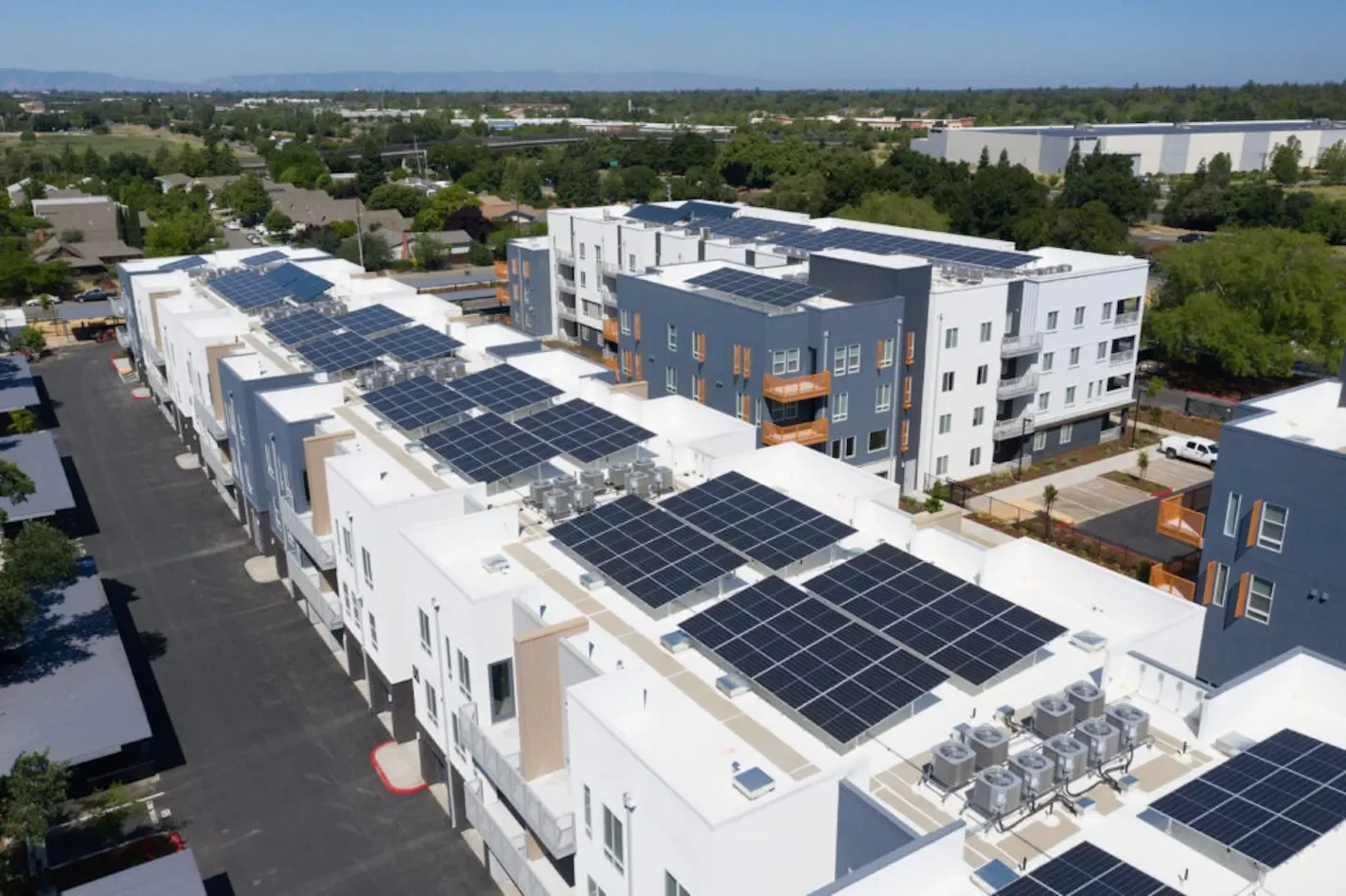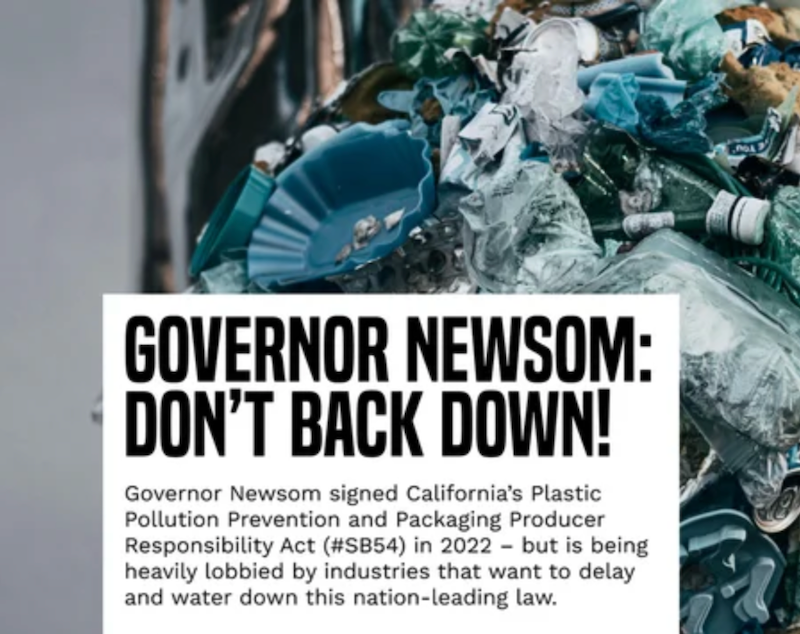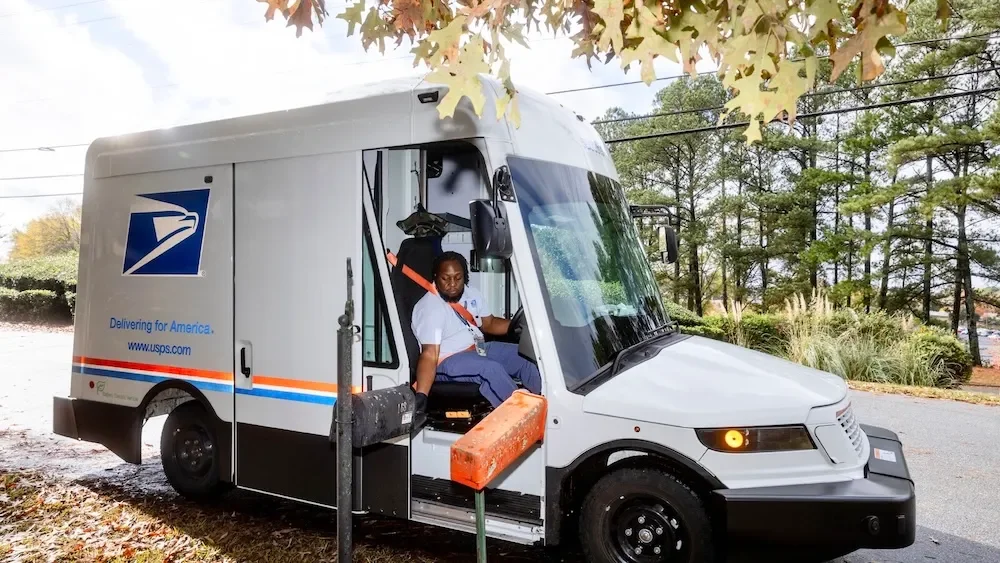
Eco Actions
Search here for:
Local in-person volunteer opportunities, including cleanups and habitat restoration.
Reach out to decision makers online about dozens of local, state, and national environmental issues.
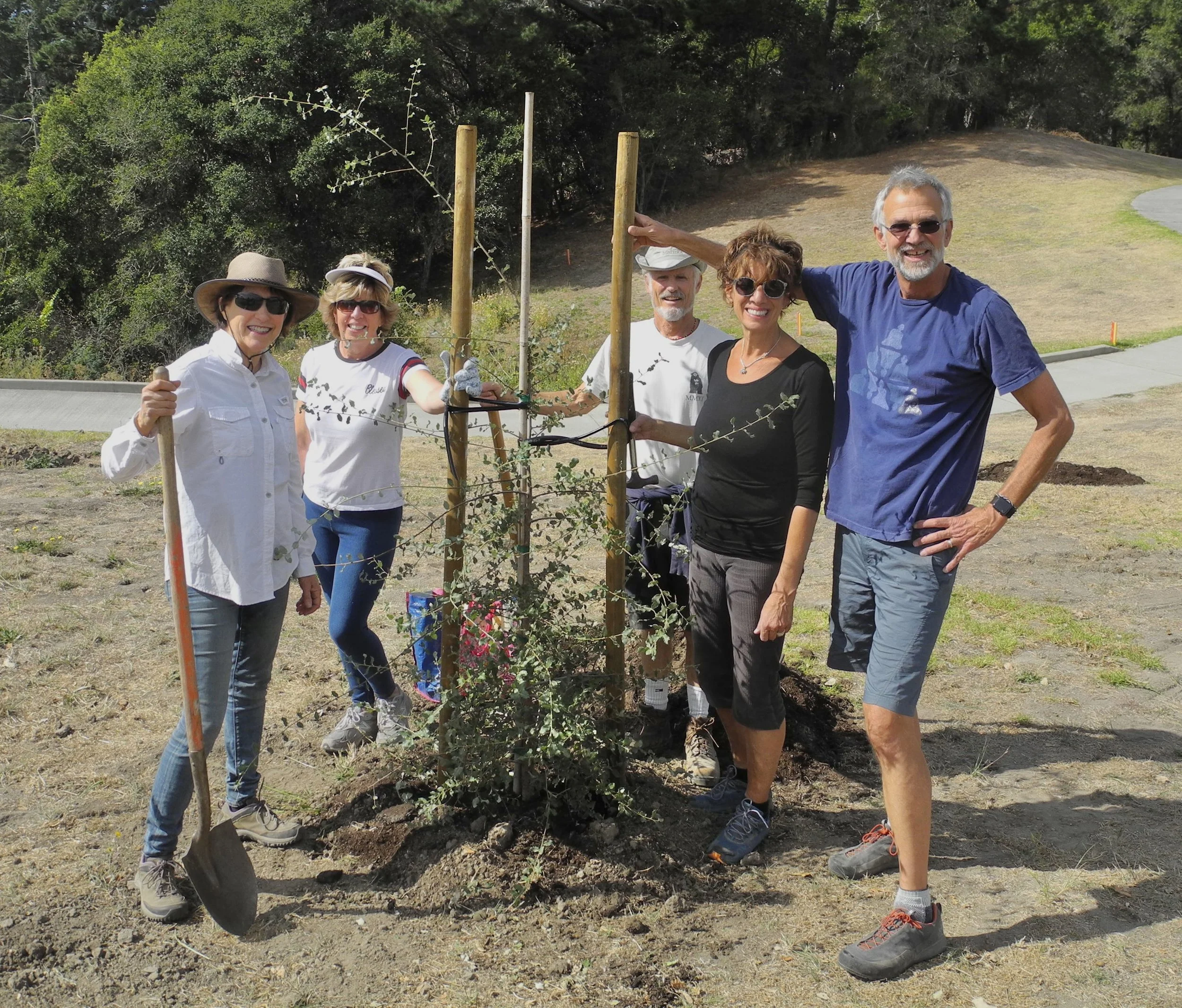
In-Person Local Action Opportunities
Support habitat restoration of popular day use areas and trails by planting native species and removing non-native vegetation. Target non-native species are Himalayan blackberry (Rubus armeniacus) and Ice plant (Carpobrotus edulis). Ages 8 and older welcome (minors must be accompanied by an adult and bring a signed waiver). Full opportunity address and directions will be sent to you by e-mail after you sign up. Info and signup HERE.
Maintain the Native Plant Demonstration Garden at the Wetlands Educational Resource Center which includes weeding, planting, pruning. Observe plants in their habitat and record findings as a group. Keep plant ID markers current and visible. Tools and Gloves provided. Bring kneeling pad if desired. Info HERE
This is a collaborative event held at neighboring Cascade Ranch to help care for the unceded lands of the Quiroste Tribe through a long-term restoration project on a section of Cascade Creek. Volunteers will work to continue removing eucalyptus, tend native plants, and plant willows if time allows. Meet new people, enjoy a delicious lunch from our Chef Educator and Culinary Specialist Linh Vong, and learn about invasive and native plants. Volunteer spots can fill up, so we recommend registering in advance. Info and Signup HERE.
Join us for a unique three-hour conservation experience focused on removing invasive French broom, an exotic shrub that threatens California’s native plants and wildlife. This volunteer event will take place at Isabel Upani, a 120-acre conservation easement forest located east of the Loch Lomond Recreation Area. Volunteers will collaborate with Sempervirens Fund’s Stewardship Team to manually remove invasive plant species. All tools and supplies will be provided. Throughout the day, participants will also learn about native plant identification, headwaters and their role in watershed health, and riparian ecosystem dynamics. Sign up HERE.
“It’s time to get your hands dirty at our 3rd Saturday of the month volunteer program in our native plant garden. Learn about local ecology, native plants, and sustainable gardening while coming together as a community to steward Tyrrell Park through the City’s Adopt-A-Park program. This native plant garden requires general landscaping, occasional watering, weeding, and replanting. All ages are welcome; children under 14 require adult supervision. Every third Saturday at the SC Museum of Natural History.” RSVPs are required. Email volunteer@santacruzmuseum.org to express interest. More info HERE.
Volunteers have been an essential part of our repair and regeneration efforts after the CZU August Lightning Complex fire burned through Pie Ranch. Designed by tribal member, Matthew Lopez, the Native Garden is shaped like a pie with pathways representing the four directions. Each “pie slice” represents different ethnobotanical native plants featuring grassland foods, fibers and basketry plants, nuts and berries, and personal care. Some of us will stay in the garden for the whole work shift and some will venture to other projects around the farm. Volunteers help with planting, weeding, harvests, culling and mulching. Volunteer work days are on the third Saturday of each month. Pie Ranch, 2080 Green Oaks Way, Pescadero.” To RSVP go HERE or email: aarganbright@amahmutsun.org
Every 3rd Sunday of the month (except December) the Advocates meet in the park for trailwork days. No experience necessary. Coffee, pastries, fruit and tools provided. Meet at Entrance Kiosk. Sign up HERE.
Every 4th Saturday of the month community members gather to help restore wetland and upland habitat. The volunteer work includes planting native plants, removing exotic invasive plants, or helping in our native plant greenhouse. We always make time for bird watching or a short hike around the wetlands. In addition, during the school year our high school interns will bring educational activities to the events. Students and community members can receive credit for community service hours. We supply gloves, tools, and a snack. Some of the events are on the trails in the City of Watsonville and others are in other locations in the Pajaro Valley. Check our social media and events calendar on our website for information on where to meet each month. Contact cara@watsonvillewetlandswatch.org to get started!
Join us at the Highlands Park Community Center, a unique location nestled close to the San Lorenzo River and surrounded by diverse ecosystems of mixed evergreen forest, redwoods, and Oak woodland. We will be developing the evolving Native Plant Demonstration Gardens surrounding the Center. This is a hands-on opportunity to learn about native plants and approaches to native habitat restoration. Bring your questions, gloves, pruners, and a water bottle. We will supply the answers and tools. INFO.

Online Opportunities for Taking Action
The current administration is making plans to expand offshore oil and gas drilling, threatening the Atlantic, Pacific, Gulf of Mexico, and Arctic Ocean. This year, the Department of the Interior launched a 5-year offshore drilling plan process to approve new oil and gas leasing in U.S. waters. The Department is expected to announce its proposal this fall, which will reveal what regions are being targeted for new offshore drilling. This will launch a critical 60-day comment period to gather public feedback. Speak out HERE.
Millions of Californians could be drinking water contaminated by toxic PFAS, increasing our risk of cancer and other health threats. Per- and polyfluoroalkyl substances (PFAS), commonly called "forever chemicals" are increasingly seen as one of the most significant environmental and public health threats of our time. These man-made chemicals are used in everything from cleaning products to cookware to make things stain proof, water resistant and nonstick. The California State Legislature passed legislation in September that would prohibit PFAS from being used in cookware, cleaning products, food packaging, children's products, ski wax and dental floss. Tell Governor Newsom to sign this legislation! Act HERE.
The Trump administration is still moving forward with its attempts to revive the coal industry and gut regulations protecting us from toxic pollution from coal-fired plants. A comment period is open until November 3rd, and we need your voice on the public record showing your opposition to the Trump administration’s plans to put coal industry profits over our health. For decades, coal-fired power plants have treated our waters like open sewers. Last year, the Environmental Protection Agency finalized improved wastewater treatment standards for these plants. Now, Trump’s EPA is trying to gut these stricter rules to bail out the coal industry.Tell the EPA today to protect our water from coal-fired power plant pollution by not delaying or weakening these wastewater treatment standards! Speak out HERE.
A collection of bills — AB 1319, SB 427, and AB 454 — would broadly protect wildlife across California. One would expand the California Endangered Species Act to protect native Californian species currently with only federal protection. Another would extend our Habitat Conservation Fund for another 10 years, which will provide $30 million statewide for wildlife protections, annually. The last would indefinitely ban the possession or taking of migratory birds in California. These bills have the potential to broadly provide wildlife protections. Urge Governor Newsom to sign them into law. Action HERE.
U.S. Representative Paul Gosar (R-AZ) introduced two bills that would, if signed into law, abolish two national monuments in Arizona: Baaj Nwaavjo I’tah Kukveni-Ancestral Footprints of the Grand Canyon National Monument and Ironwood Forest. The bills also seek to undermine and weaken the Antiquities Act by requiring congressional approval to designate or expand these national monuments in the future. These bills would eliminate protections for over 1 million acres of public lands in Arizona and set the stage for weakening national monument protections across the country. A strong majority of voters from both sides of the aisle oppose shrinking national monuments. Action HERE.
As more Americans become aware of the plastic crisis for our oceans, climate, and health, many are rejecting single-use plastic and opting for reusable alternatives. A bipartisan, common-sense bill called the Research for Environmental Uses and Sustainable Economies (REUSE) Act of 2025 takes an important step toward tackling the plastic pollution crisis. It directs the U.S. Environmental Protection Agency to study how reuse and refill systems can be expanded across the country. Reusable packaging is a proven solution in the fight against the plastic problem, and it has the lowest carbon footprint of any packaging option. By reducing reliance on single-use plastics, reuse and refill infrastructure can cut waste, lower emissions, and create jobs in a truly circular economy. Here’s one thing you can do: Urge your Senators to cosponsor the REUSE Act 2025 HERE.
Is that plastic container recyclable? It can already be hard enough to figure out which items go in which bin. But now plastic companies want the Federal Trade Commission to allow them to slap a chasing arrows recycling symbol even on products that are virtually guaranteed to end up in landfills. When it comes to recycling, we deserve transparency. That’s why we’re working to convince the Federal Trade Commission (FTC) to enforce accurate recycling labels. The FTC should limit recycling labels to products that are actually being recycled. Act HERE.
This petition is to the Mayor, City Council, and City Manager of the City of Santa Cruz; the Santa Cruz County Board of Supervisors; and the Santa Cruz County Regional Transportation Commission (RTC):
We, the undersigned, respectfully request pedestrian and cyclist access across the Santa Cruz Harbor via the Murray Street Rail Bridge for the duration of the three-year Murray Street Bridge closure due to earthquake retrofitting. This temporary access is crucial for the survival of small businesses and the well-being of the two neighborhoods that have been severely impacted by the closure. More info HERE.
Youth for Environmental Action (YEA) brings Santa Cruz County high school students together for impactful youth-led environmental stewardship and climate action during the ’25-’26 school year. Take advantage of these opportunities: YEA Leadership Team (No prior leadership required), School Support Teams, and Volunteering at environmental stewardship events. Students apply at tinyurl.com/YEA25-26. YEA team members receive community service hours and gain valuable new skills. Students can apply HERE.
We would love to have you join us in developing Environteers! All of the work (volunteer) is enjoyable, flexible and creative. We need a teammate or 3 who would enjoy networking with other nonprofits, connecting with college student communities, outreach to businesses with community service programs, publicizing with social media, and/or technical advice on Word Press or Mailchimp. Or bring your ideas! Contact us at info@environteers.org
Starting now, you can sign up for People’s Ecochallenge happening this October! Join thousands of changemakers as we explore more than 100 Actions across nine motivating categories: Community, Energy, Health, Food, Simplicity, Nature, Transportation, Waste, Water. Whether your team wants to spend more time outdoors, conserve water, or strengthen your community, the People’s Ecochallenge has Actions to meet you where you are. Pick what matters most and shape your Ecochallenge experience to fit your life. Available en espanol. Join in HERE
Every child deserves the chance to explore the beauty of America’s national parks, forests, and public lands. The Every Kid Outdoors program currently helps make that possible by giving every fourth grader and their family a free annual pass to enjoy these incredible places. But this program is set to expire unless Congress acts. Congress just introduced the Every Kid Outdoors Reauthorization Act, a bill that would make this successful program permanent and expand it to include fifth graders too. This program is not new; it’s tried, tested, and highly popular. Best of all, it helps kids from all walks of life build healthier bodies, stronger minds, and lifelong connections to the outdoors. Act HERE.
Big Ag and Big Oil interests are pushing the California Legislature to back a $20 billion boondoggle that we cannot afford, and we need your help to stop it. Climate change is driving the water crisis in California. But instead of reining in their abuses, water-guzzling agribusiness and fossil fuel operations are pushing our legislators in Sacramento to fast-track the Delta Conveyance Project. If completed, the project would redirect water into a massive tunnel that bypasses the Sacramento-San Joaquin Delta, causing extensive ecological harm and further degrading water quality in the Delta. We already stopped an effort in June to push this legislation through, and we can do it again. Tell your State Senator and Assemblymember to protect our environment and our wallets by voting NO on any bill to support the Delta Conveyance Project. Act HERE.
Congress is considering H.R. 65, the “Armed Forces Endangered Species Exemption Act.” On the surface, this bill claims to support military readiness. But this bill is an overreach that seriously threatens the Endangered Species Act (ESA) by carving out massive loopholes that put vulnerable wildlife in danger. Military lands are biodiversity strongholds. Many endangered species survive on these lands because they’ve been shielded from the kind of development that destroyed wildlife habitats elsewhere. Stripping ESA protections could devastate already fragile populations. Several endangered or threatened species, such as the Florida panther, California condor, and red wolf, have been found on U.S. military lands. What H.R. 65 would do: Exempt the entire Department of Defense from the ESA; Ban ESA protections on military lands; Eliminate accountability for harming or killing endangered species. Speak out HERE
Americans throw away more than 400,000 cell phones every day. Not every year. Every single day. If you stacked these phones flat on top of each other, they would create a tower six times taller than the Empire State Building. If we want to reduce this electronic waste, we need phones that are durable and repairable. All rechargeable batteries eventually die, which means smartphone manufacturers, like Apple, Samsung, and Google, can prevent a big chunk of this e-waste with one simple step: Make the batteries in their phones easily replaceable. Tell tech companies – Let buyers easily replace their phone batteries. Speak out HERE.
One of the most important aspects in childhood development is the food that is served to our kids in school, but unfortunately some of those meals are Ultra-Processed Foods (UPFs). UPFs are chemically modified food products that can be made with harmful chemicals and additives to enhance their taste and texture. They’ve been linked to serious health conditions, which include cancer, cardiovascular disease, type 2 diabetes, reproductive and neurobehavioral harm, and mental health decline. Right now, California lawmakers are considering a bill that would help phase out UPFs from meals served in public schools, which is a step forward in helping protect kids in school. Tell your state senator: Support AB 1264 to get harmful additives out of our school lunches. Act HERE.
Among the most common forms of microplastics found in the environment are microfibers, thread-like strands that shed from our clothes and textiles when we produce, wear and wash them. A single load of laundry can release up to 18 million microfibers, with many of them eventually making their way into the ocean. The good news? There’s a proven solution that helps address this problem. Congress is considering the Fighting Fibers Act, a bill that would require new washing machines to include microfiber filters, which halt microfibers at the source (our laundry water!). Let’s make sure our lawmakers pass the Fighting Fibers Act. If you’re with us, urge Congress to filter out microplastics now. Act HERE.
Governor Newsom has the chance to protect Californians from toxic PFAS in everyday products, and he needs to hear from you. Last week, the California legislature passed SB 682, which would ban PFAS from household items like cookware, dental floss and cleaning products. The bill is now on Governor Newsom’s desk, and he could decide to sign or veto it at any moment. The chemical and cookware industries have been lobbying hard to stop this bill. The New York Times even reported that Rachel Ray and other chefs who profit from their lines of PFAS-coated cookware are speaking out against the bill. Your voice is urgently needed to counter industry pressure. Send message HERE.
California Governor Gavin Newsom is threatening to veto AB 823 (Boerner), a proactive bill that would ban the sale of toxic plastic microbeads in non-rinse-off personal care and cleaning products, and ban plastic glitter in personal care products. Microplastics have been linked to numerous health concerns, including cancer, dementia, infertility, and hormone disruption. AB 823 would ensure that Californians are using safe products and not polluting the state’s waterways. AB 823 would take effect beginning January 1, 2029. Urge Newsom to sign AB 823 HERE.
Scientists have barely begun to learn about the fragile, complex ecosystems of the sea floor. This mining plan threatens to destroy deep sea ecosystems before we ever get the chance to learn more about them. Many of the species that live in the depths are long-lived and slow-growing. It could take years for them to recover after their habitat is disturbed by deep-sea mining. In addition, some forms of deep sea mining could create plumes of waste that may travel huge distances from mining sites, with wide-ranging negative impacts on other ocean ecosystems. Tell the Interior Department: Don’t mine the deep sea. Act HERE.
Write today to ask you your representatives to defend the Marine Mammal Protection Act (MMPA) against a new bill under consideration in the House. The bill would dismantle: a broad prohibition on actions that harm marine mammals and their habitat; reducing bycatch of marine mammals in fisheries; and using science-based management to recover populations to healthy levels. More info and Action HERE.
Our beaches are the heart of Santa Cruz County. Join the Surfrider Beach Guardian program to help keep our shores clean and healthy! As a Beach Guardian, you’ll monitor a local beach, organize cleanups, report pollution, and participate in efforts to protect our oceans and coastlines. It’s a fun and impactful way to make a difference and preserve the beauty of our beaches for everyone to enjoy. Let’s protect what we love! Info HERE.
We’re excited to announce that we have reimagined a new web experience inspired by your interests over the past few months – featuring more event-focused content, especially around emergency preparedness and home electrification. As part of this evolution, you’ll now receive monthly updates directly from Ecology Action, the nonprofit powering RCC and many other local climate initiatives across the Central Coast. What’s changing? You’ll get climate action tips, webinar invites, and local resources—all in one place. No more login barriers—just open access to tools and inspiration. Exposure to more community climate actions. Sign up HERE.
The White House Office of Management and Budget proposed FY2026 budget calls for substantial funding cuts for NOAA, including the National Estuarine Research Reserve program. If this budget is approved by Congress, the Elkhorn Slough Reserve — one of 30 Reserves established around the country as hubs for environmental stewardship, research, and education—will face substantial reductions in programs and staffing. It is important for community members to voice their support for the Elkhorn Slough Reserve to their congressional representatives. Federal funding covers 70% of Reserve operating costs. Without congressional support, Reserves could stand to lose this funding after October 1, 2025. Three actions you can take HERE.
Following up on promises to ramp up logging — including clear-cutting — across federal forests, the administration has announced plans to obliterate the Roadless Rule, a landmark land-conservation policy that has protected many of the most pristine backcountry areas of our National Forest System against costly and harmful road building and logging since 2001. The roadless rule has protected 58 million acres of our wildest national forest lands from road building, fires, oil and gas drilling, and logging for more than a generation. More than 90% of fires start within a half mile of roads in our forests. Defend the forest protections we have fought so hard for by telling the administration that you oppose increased roads and logging in our most pristine federal forests, and weakening of environmental protections. Take ACTION
Set gillnet fishing gear is known to have high rates of what is called bycatch — the incidental catching of nontargeted marine animals like sea lions, seabirds, sharks, and other species that often results in harm or death for the entangled animal. These gillnets are still used in offshore ocean waters in Southern California and around the Channel Islands. Assembly Bill 1056 authored by Assembly member Steve Bennett (D-Ventura) — aims to protect California ocean biodiversity from gillnet fishing. This bill will end the use of set gillnets in California, through a long-term phase-out that allows current fishermen to continue fishing through their lifetime but prevents the future transfer of the permit. Tell your state legislators to pass this bill now HERE.
Last fall, something remarkable happened: the Santa Cruz County Board of Supervisors voted unanimously to ban the sale of filtered tobacco products — a bold move to protect our environment from the most littered item on Earth. It was a big win for public health and ocean advocates alike. On June 24, the Santa Cruz City Council unanimously voted to support the ban! More recently Capitola voted for the ban so now that two local cities have pass similar ordinances, the law goes into effect until . Go HERE to support this measure passing in Watsonville, Scotts Valley and/or Monterey.
We’re approaching a critical deadline for rooftop solar—and for our climate. Unless state leaders act quickly, solar tax credits set to expire on December 31 — the result of legislation signed by former President Donald Trump — could slow new rooftop solar construction just when we need it most. Expanding rooftop solar is one of the most immediate and effective ways to reduce climate pollution. Solar panels cut greenhouse gas emissions, reduce demand for fossil fuels, and improve air quality in local communities. A new study shows that the climate benefits of rooftop solar have been vastly underestimated—especially when compared to centralized utility-scale generation. Send a message urging your governor to accelerate rooftop solar before the deadline. Act HERE.
Plastic cups, takeout containers, and packaging litter our environment and degrade into microplastics that threaten public health. That’s why CALPIRG Students campaigned to pass a nation-leading law against plastic packaging pollution, which requires all single-use foodware and packaging to be recyclable or compostable and requires major reductions in plastic production. Unfortunately, CalRecycle’s latest draft regulations weaken the requirements of the law, creating new broad exemptions and allowing harmful practices to public health such as “chemical recycling,” a process akin to burning plastic. Tell Governor Newsom: don’t allow harmful plastic burning in California. Act HERE.
The U.S. Postal Service (USPS) is in the process of electrifying its fleet of delivery vehicles. The first zero-emission mail truck hit the road last year, and now more than 7,200 electric delivery vehicles are bringing Americans their mail. But a proposal in the U.S. Senate would have forced the USPS to sell off its EVs and reinvest in fossil fuel-burning trucks. This supposedly money-saving move would actually cost the Postal Service upwards of $1.5 billion. Selling off trucks we already bought and letting charging infrastructure go to waste just doesn’t make any sense. Even though the proposal was pulled from current legislation, we expect it to be raised again soon — and we need to stop it before it can get started. Take action to stop this wasteful proposal. Tell your representative: Keep the U.S. Postal Service’s electric vehicle fleet on the road. Act HERE.

